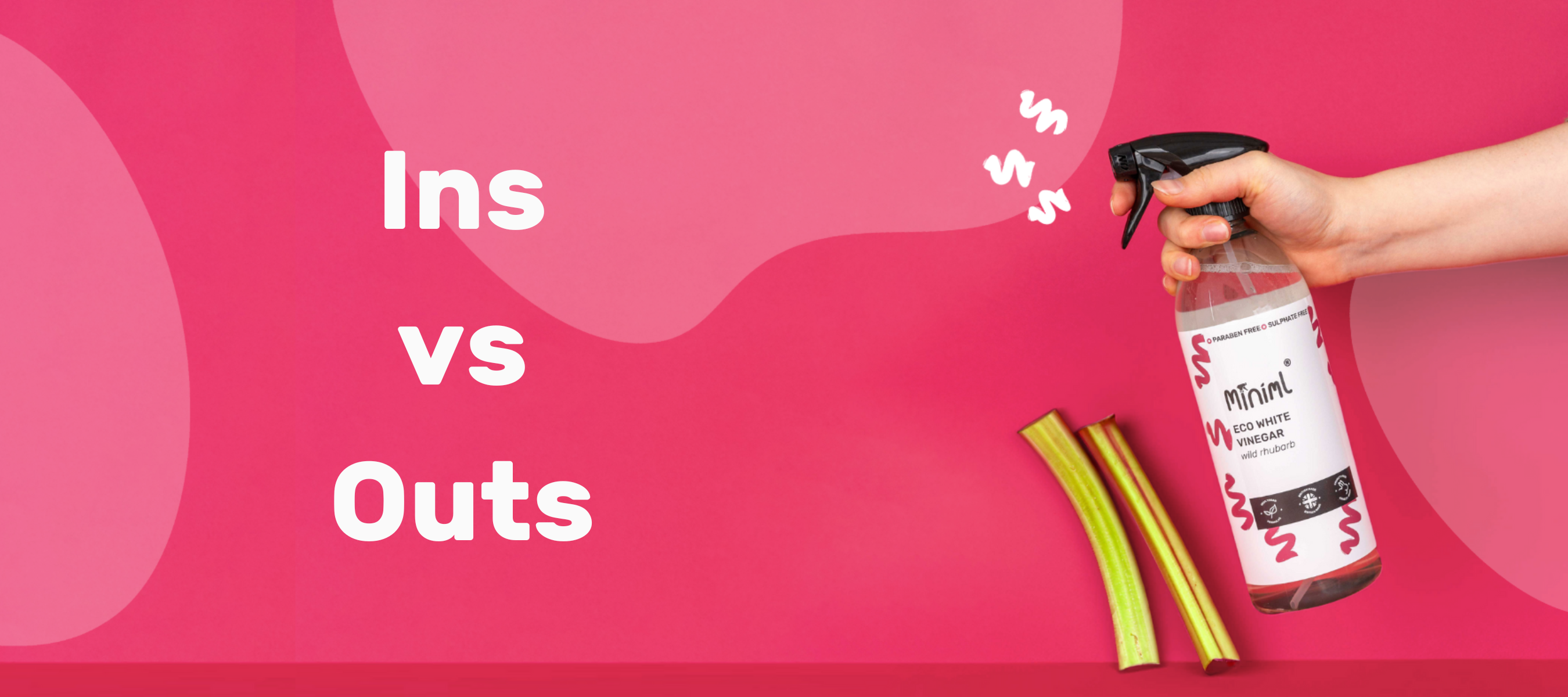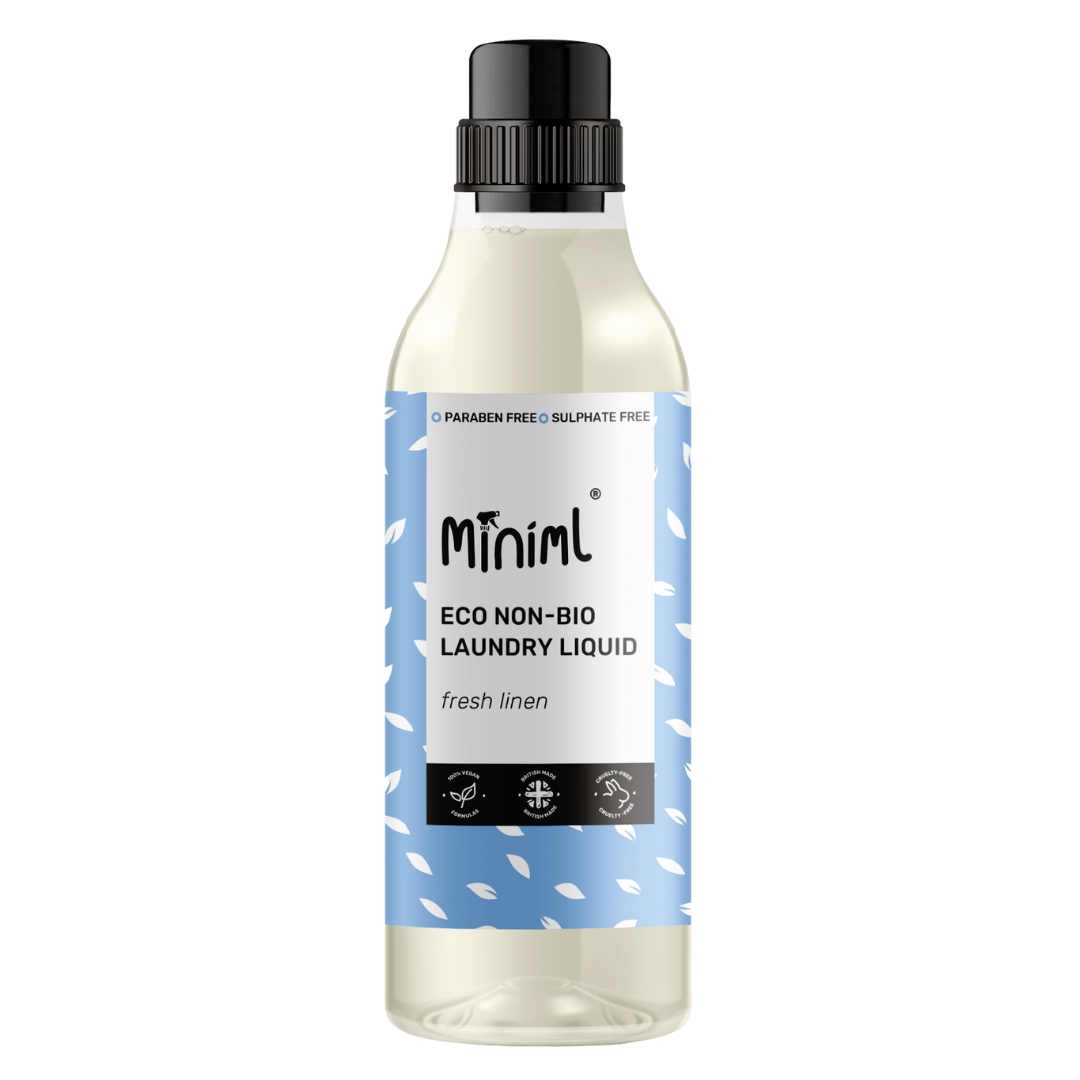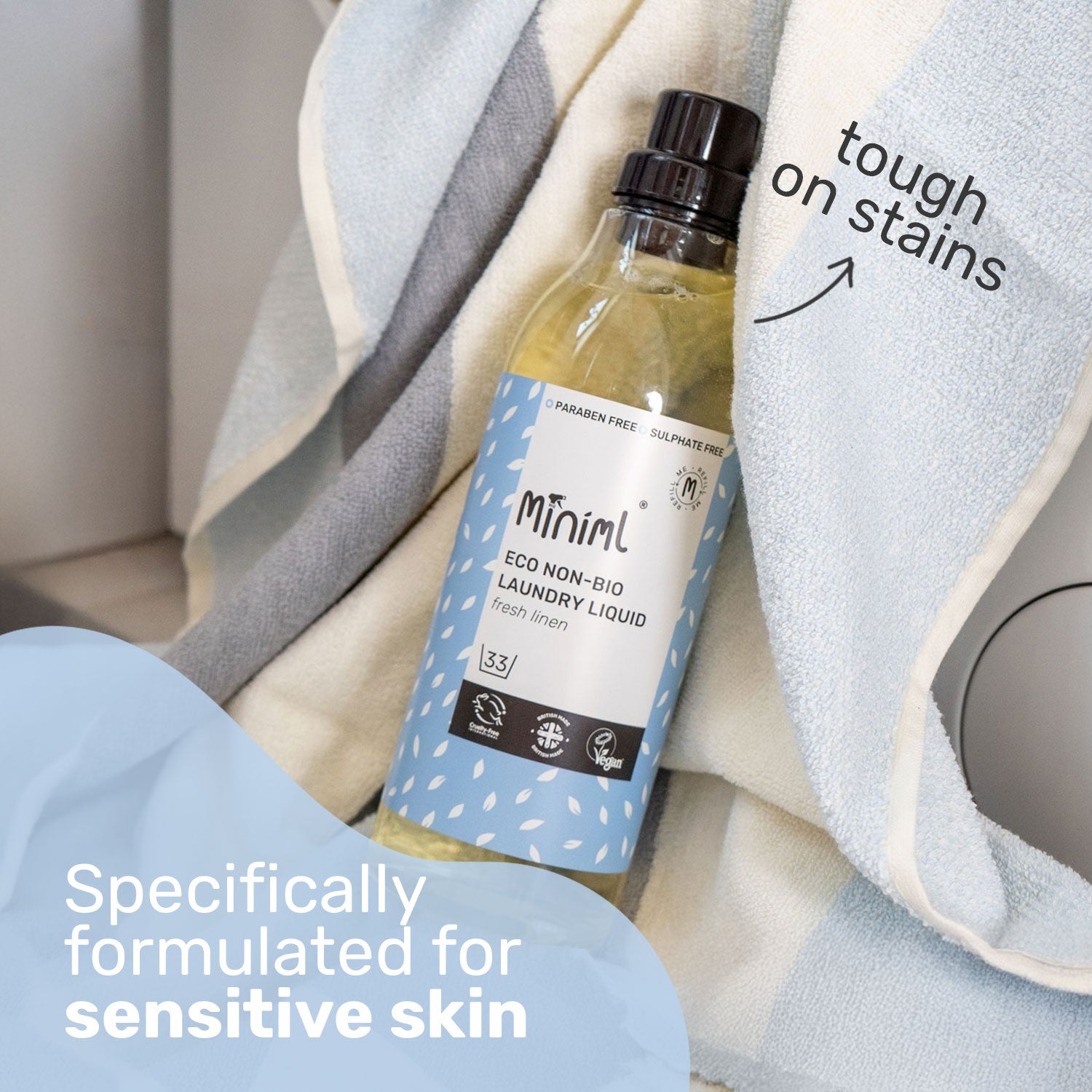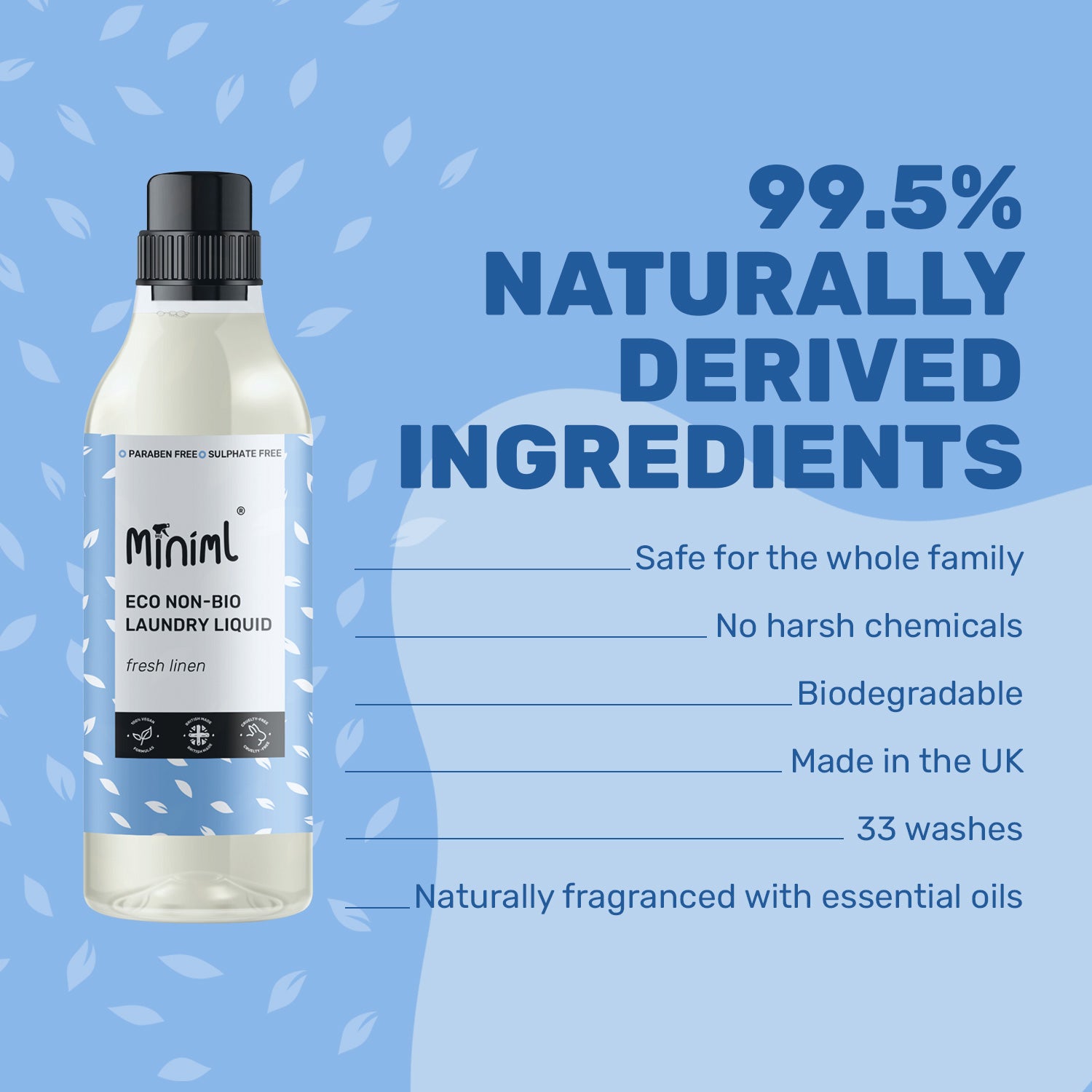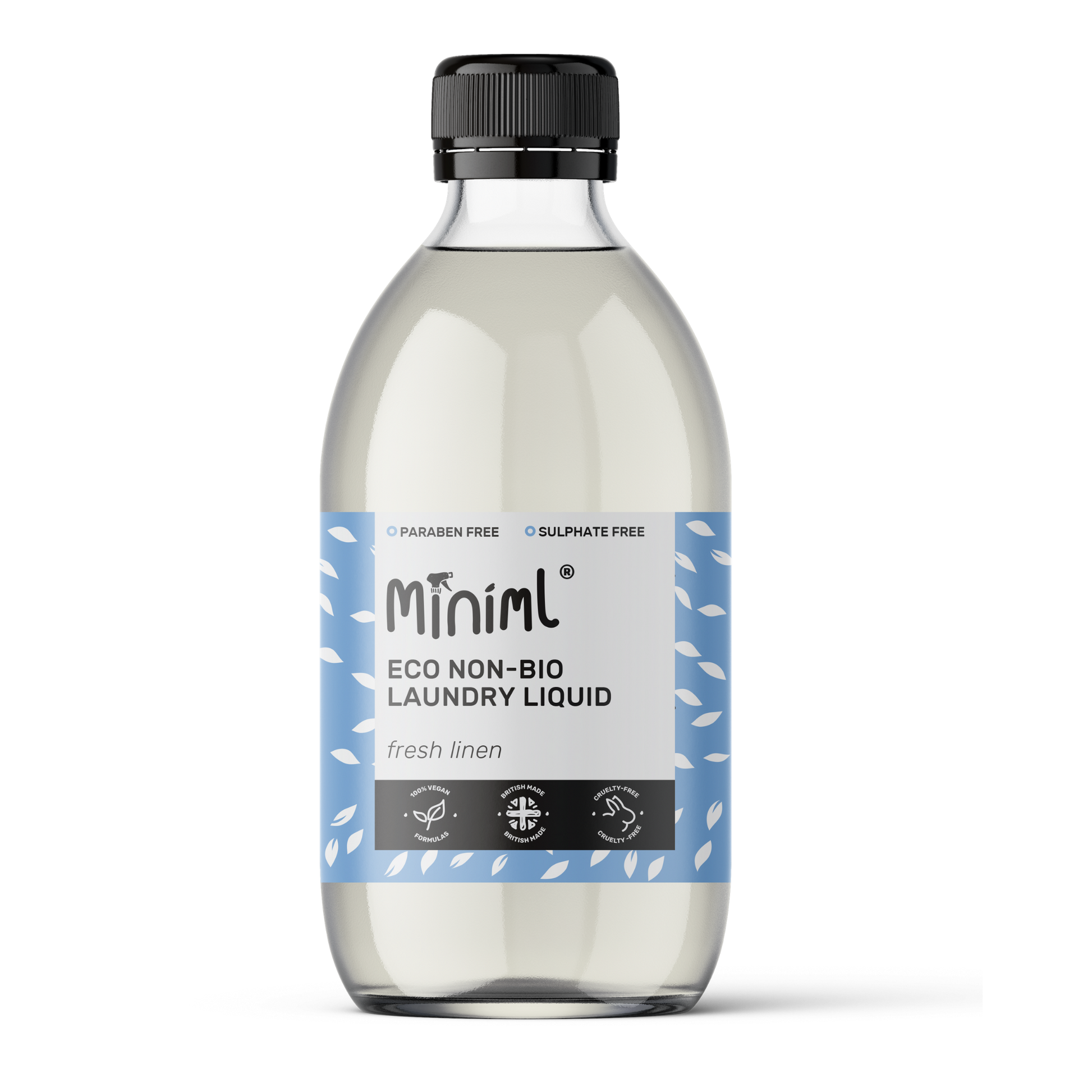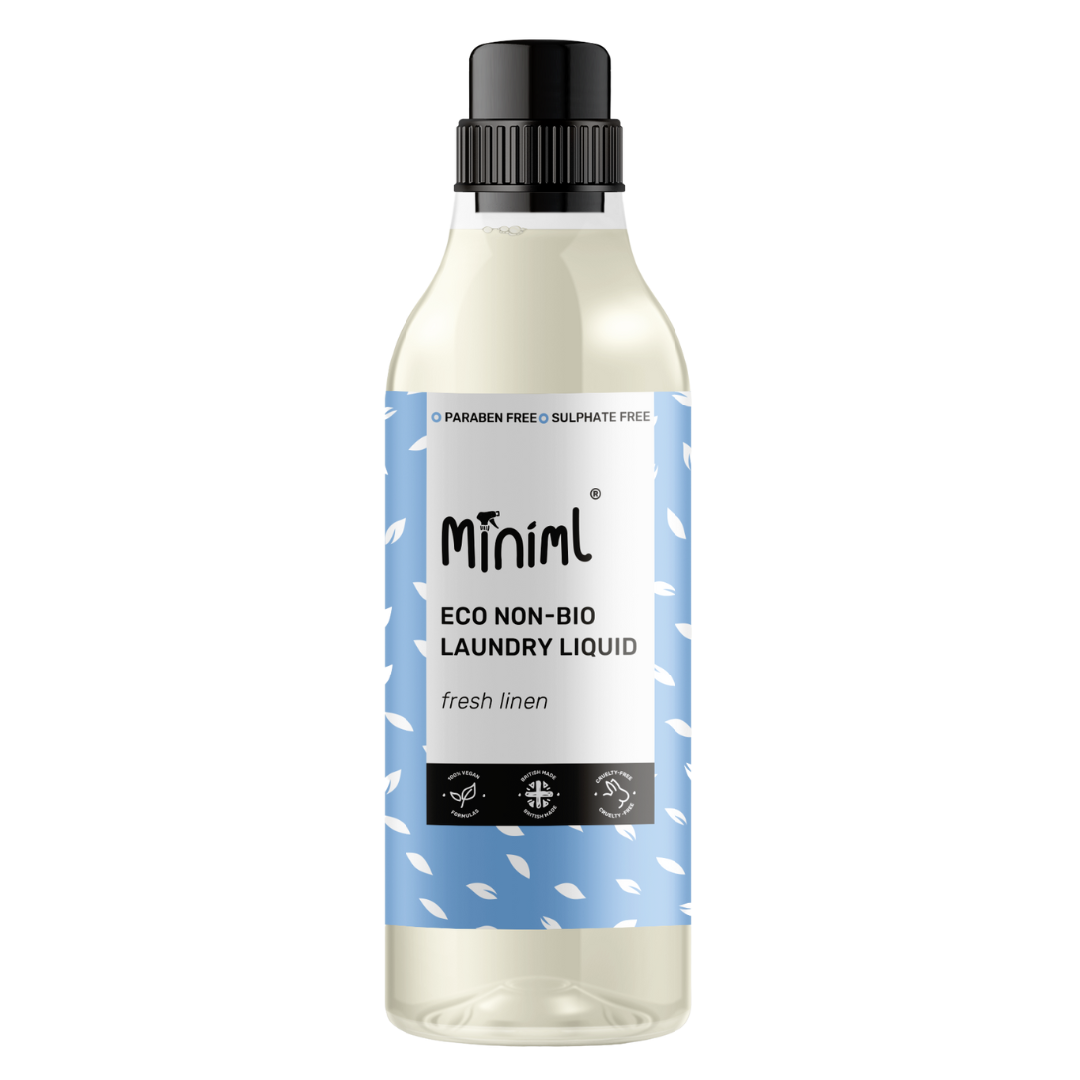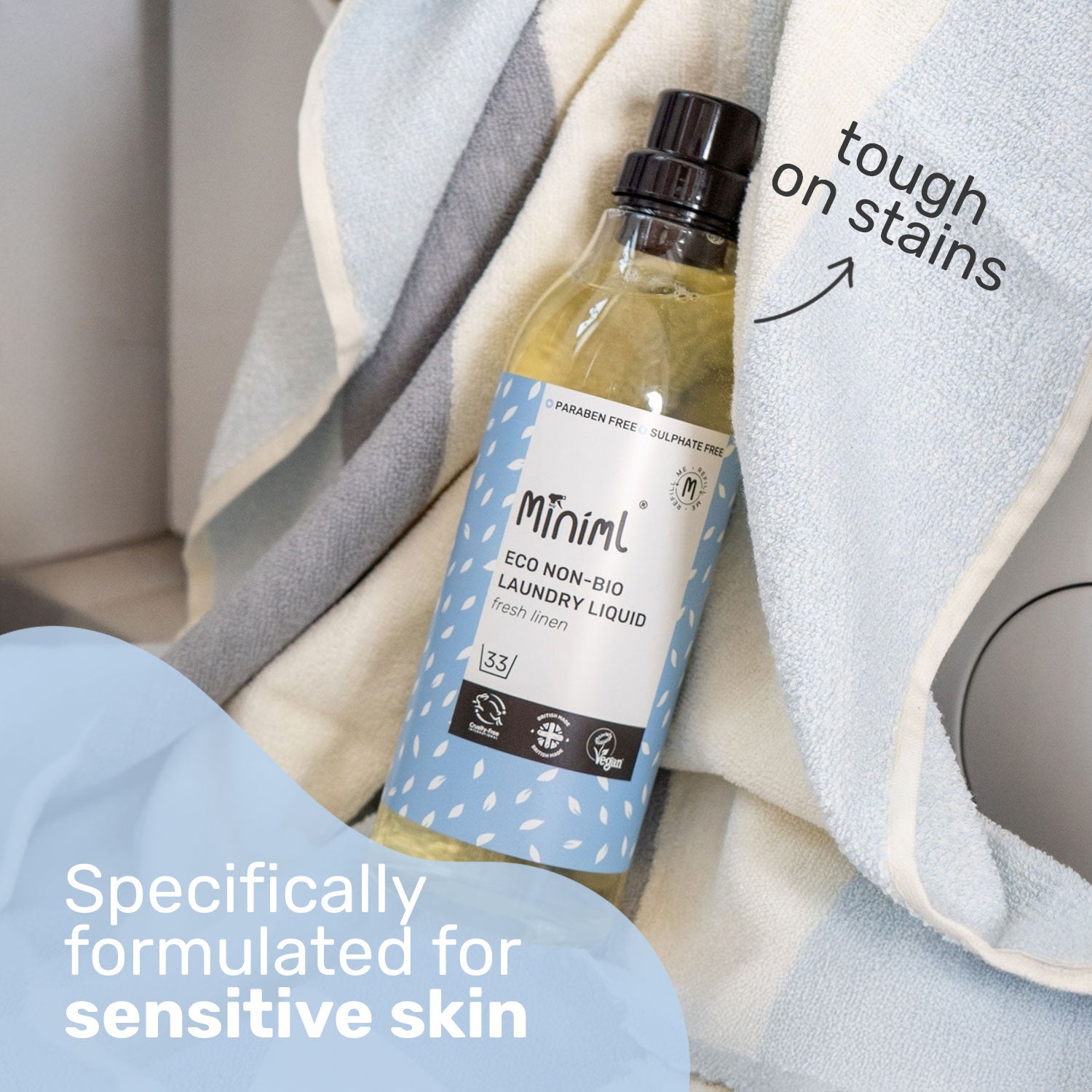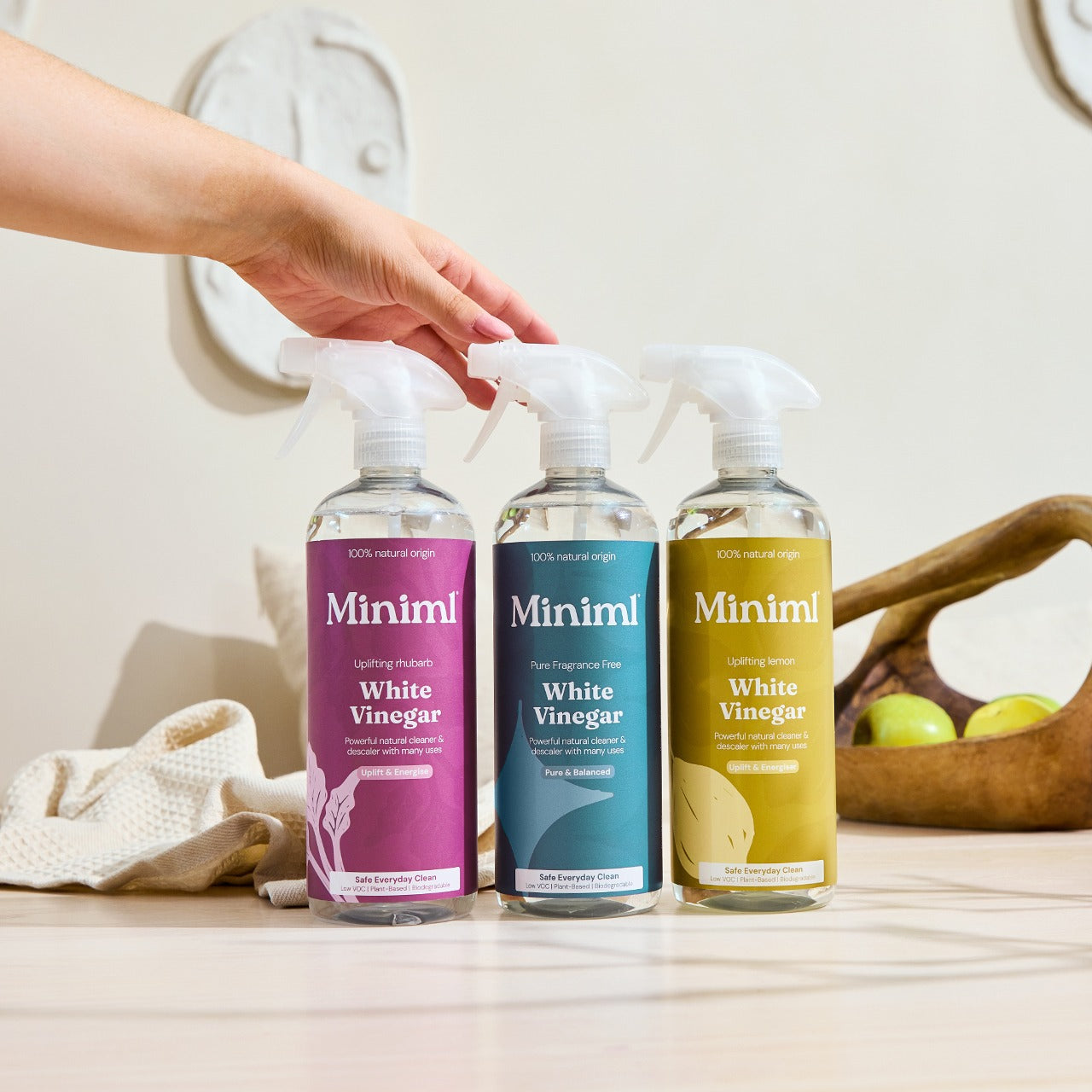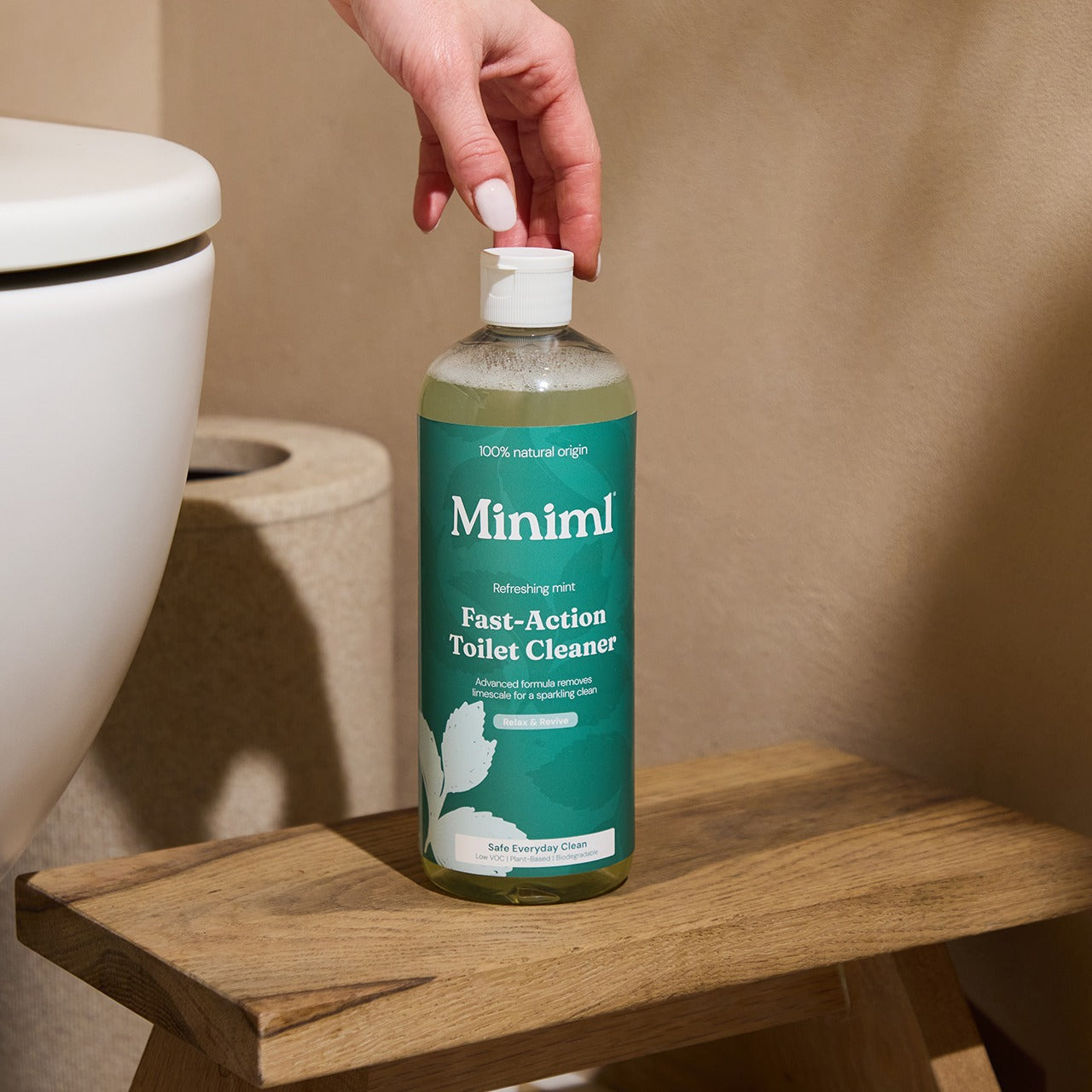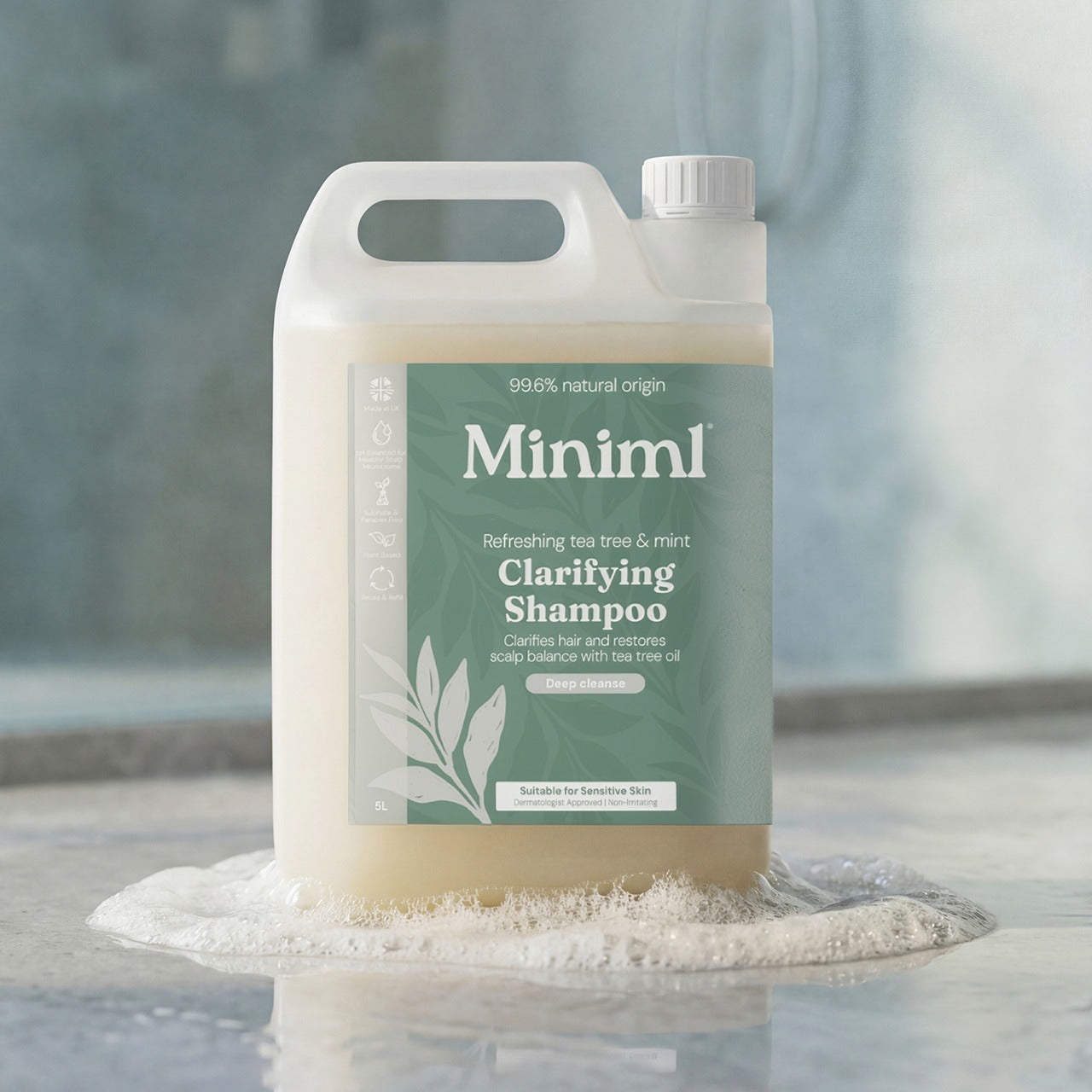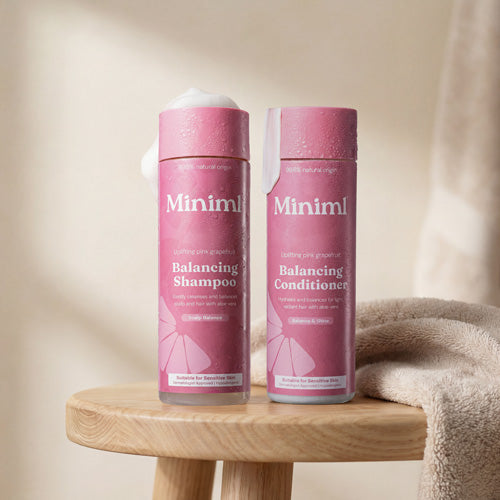
Welcome to a new year of cleaner and greener habits! As we step into 2024, it's time to bid farewell to outdated cleaning practices that not only harm our homes but also impact the planet. Let's explore why it’s crucial to leave these trends behind and discover smarter, more sustainable alternatives!
Out: Toxic Chemical Misuse:
The allure of powerful cleaning solutions promising instant cleanliness might seem appealing. However, the excessive use of harsh chemicals not only poses health risks but also contributes to environmental pollution. It's time to reconsider the reliance on bleach, ammonia, and other heavy-duty cleaners that impact both our health and the planet.
In: Science-Backed Alternatives
White Vinegar, baking soda, citric & lactic acid, as well as hydrogen peroxide are effective, non-toxic options that do wonders without harming your health or the environment. For example, vinegar battles grease and grime, while baking soda neutralises odours. Choose products that contain natural components or make your cleaning solutions at home.
Out: Overusing laundry detergent:
Overloading your laundry with detergent doesn’t necessarily mean cleaner clothes! In fact, using excessive detergent leaves residue on fabrics, attracts more dirt, and contributes to environmental water pollution.
In: Using detergent sparingly.
Follow manufacturer recommendations for detergent amounts based on load size and soil levels. Opt for eco-friendly detergents that are effective even in smaller quantities, reducing environmental impact. Miniml’s Eco Laundry Detergent is not only gentle on the environment but is also gentle fabrics, such as baby clothes and satin.

Out: Microfiber Cloths.
Were you not ready to hear this? 👀 Microfiber cloths, touted for their cleaning prowess, have a hidden downside—they shed microplastics when washed. These tiny fibers contribute to water pollution, adversely affecting marine life and ecosystems.
In: Natural fabrics.
Choose natural fiber cloths - cotton, bamboo cloths, as well as Swedish dishcloths offer equal cleaning effectiveness without the environmental impact. They are biodegradable, ensuring they won’t contribute to pollution.
Out: Unsustainable Cleaning Practices:
Indiscriminate spraying of cleaning products not only wastes resources but also harms the environment. Excess product runs down drains, polluting water systems and causing chemical contamination. Additionally, too much solution on glass and shiny surfaces is more likely to leave a white cast!
In: Optimising your cleaning routine.
Use the right amount of cleaner—less is often more effective. Targeted application reduces waste and prevents harmful chemicals from entering ecosystems.
Out: Single-Use Cleaning Products
If your cleaning cupboard looks like a supermarket shelf, stuffed with every possible solution for various cleaning purposes, it’s time to declutter! A kitchen spray, a spray for appliances, glass spray, bathroom spray, general surface spray, fabric spray…is a recipe for respiratory problems and a migraine attack. Furthermore, purchasing so many solutions inevitably increases your monthly spendings.
In: Multi-purpose solutions.
Most cleaning solutions can be used for multiple uses. Believe it or not, you could use your kitchen spray to clean the bathroom just as well! Even better advice is to use multi-purpose solutions that are tough on grime, yet gentle on the surfaces and your health. For example, white vinegar is a great descaler, polisher, disinfectant, and a surface cleaner. Furthermore, multi-surface cleaners, such as Miniml’s Blood Orange Multi-Surface Spray, is suitable for every cleaning duty in your home, even freshening up your upholstery!
By bidding adieu to outdated cleaning trends and adopting scientifically-proven alternatives, we’re not just cleaning our homes—we're contributing to a healthier home environment and a more sustainable planet. Let’s make 2024 the year of smarter, greener cleaning practices! 🌿🧼✨


